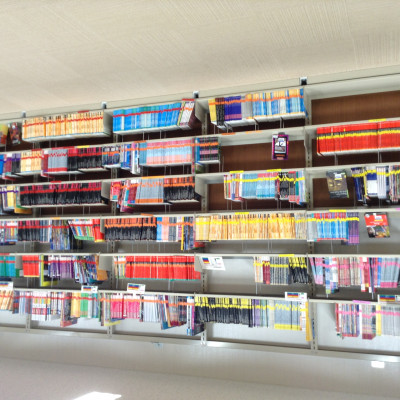Sessions / Location Name: Grand Ballroom
Location not set by organizers
Location:
Building: Aston Hotel < Aston Denpasar Hotel & Convention Center
Embracing digital media: Strategies for better listening and viewing #3668
The digital age presents challenges and opportunities for extensive listening and extensive viewing as well. While traditional modes of listening and viewing have been replaced with digital platforms, they have opened up new avenues for learners to engage with materials in a more personalised and interactive way. For instance, audiobooks and podcasts offer a convenient way to access a wide range of content, while interactive videos with captions and subtitles can aid in language learning. In addition, learners can benefit from the collaborative and social aspects of digital media through online forums and social media groups. Educators and researchers need to consider how digital media can be leveraged to enhance extensive listening and viewing programs and promote engagement and comprehension. They should also examine the potential impact of digital media on listening and viewing habits and ensure that learners develop sustainable habits for long-term learning. This presentation will explore the benefits of digital media for extensive listening and viewing and provide examples of how they can be incorporated into learning programs. The speaker will draw on experiences from extensive listening and viewing programs in Indonesia to illustrate these points.
Gala dinner #3869
Networking and dinner. Reservation required.
The Big ER Quiz #3847
This session will be a fun quiz to test your knowledge about extensive reading, graded readers, people and so on surrounding our world. It will be conducted via Kahoot.
ER and Fluency #3670
For many language teachers and most language students, fluency means the state in which you are able to use the language you have been given or chosen accurately and appropriately in any situation in which you find yourself. This general or broad definition conflates fluency with proficiency (Lennon, 1990), but fluency is also understood by language teachers and researchers as an aspect of the complex construct of proficiency along with accuracy and complexity. As such, fluency refers to those elements of language production that include speed, smoothness, and effortlessness (Chambers, 1997). It is easy to see how the accomplishment of accuracy has been the main driver of language classroom curricula in spite of attempts to shift focus to meaningful language use. Usage-based theories of language learning suggest, however, that building fluency should have a more prominent role in language curricula from the very beginning (Ellis, N. 2005), and in all four skills (Nation, 2007). Gaining proficiency in each of the skills necessitates efficient (automatic and stable) processing of low-level processes, which are unconscious, unintentional, and involuntary (Olkonnen, et al. 2020). For reading fluency, these processes include phonological processing (grapho-)phonemic discrimination, word recognition, syntactic parsing and linking grammatical forms with meanings (Grabe, 2010). One of the claims of those who research the benefits of ER is its impact on the development of reading fluency (Al-Hamoud & Schmitt, 2009; Beglar, Hunt, & Kite, 2012; Bui & Macalister, 2021; Mclean & Roualt, 2021), but in Nation and Waring’s “four strands” curricular scheme (2020), ER is not included as a fluency building activity. What then is fluency-building and how do we support its development in the classroom with or without ER?
Writer to reader #3735
When writing a story for language learners you enter into one of the most intimate relationships that a writer can have with a reader. This presentation will examine that relationship. How can the gap between reader and writer be bridged in order to make the reading journey as comfortable as possible? As a writer, you have to be with your readers at all times, anticipating parts of the road where they may stumble or fall. You have to extend a helping hand to help them during their journey. At the same time however, it is important that your fellow travellers do not see the hand you are extending. It has to be a real story. And with real stories you make the journey by yourself. You want readers to feel that that they have made the journey on their own, so they will come back next time, for another story.
Great book giveaway #3870
Pick up some graded readers from the collection donated to the conference.




